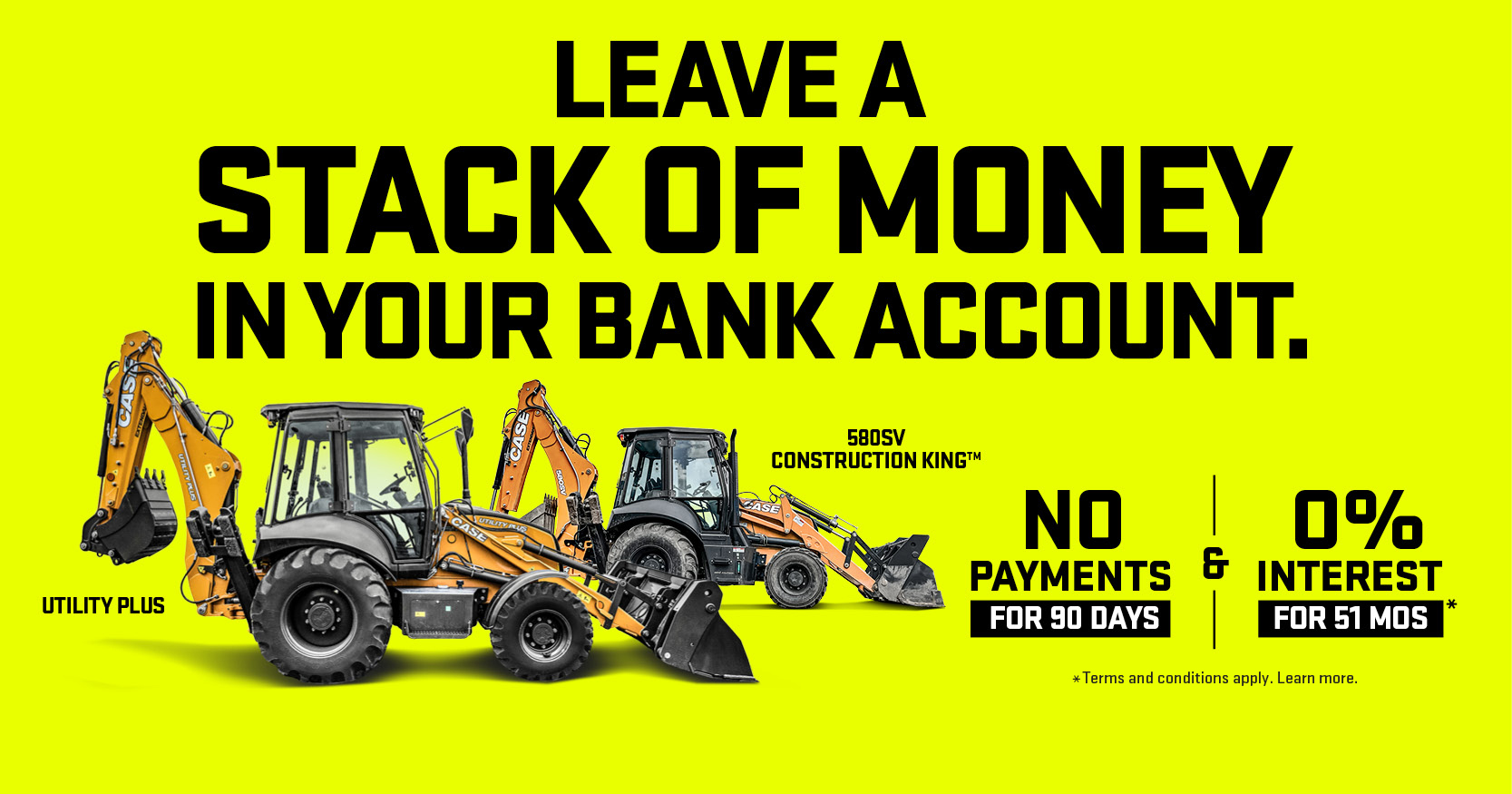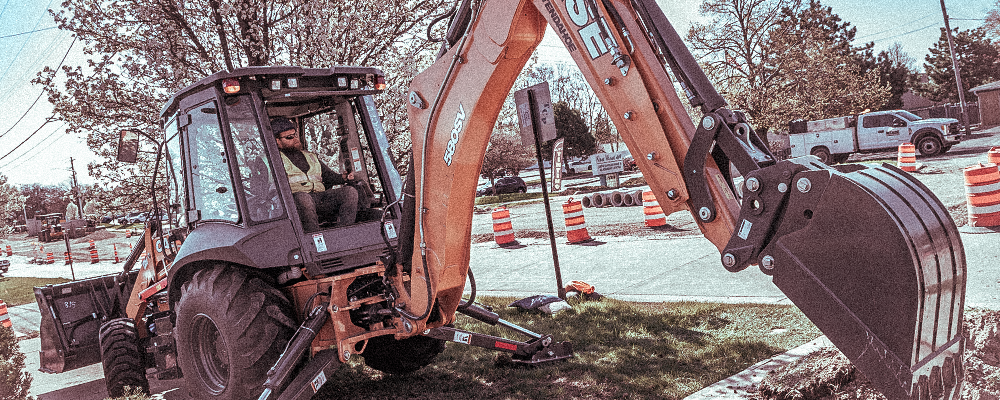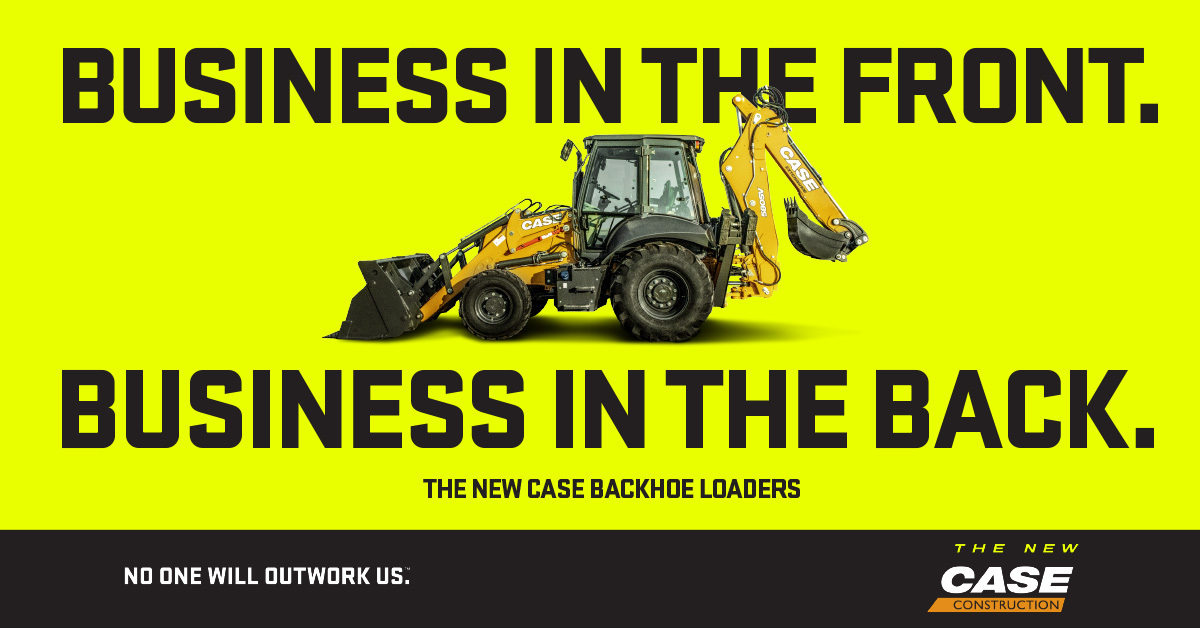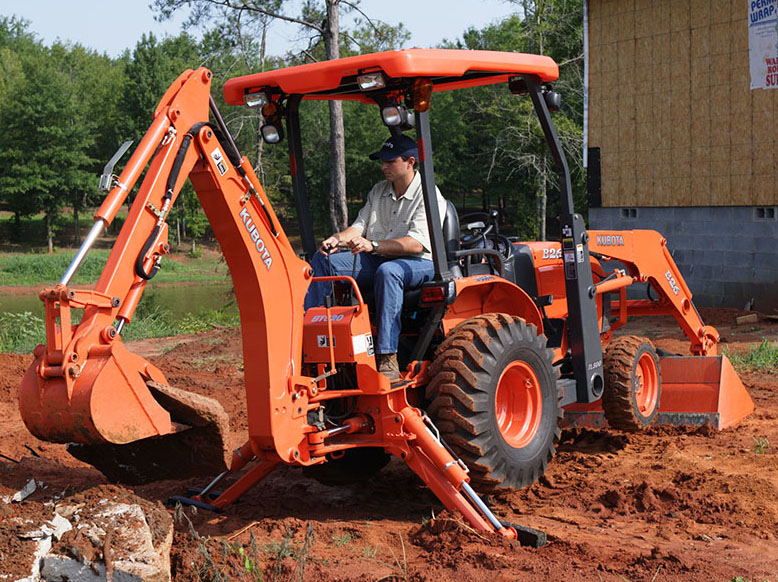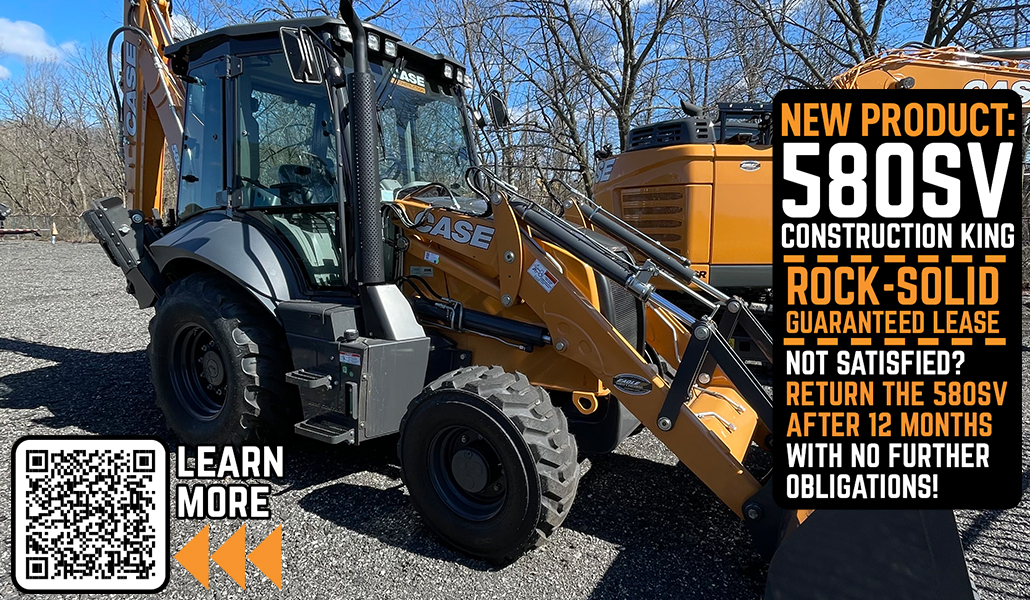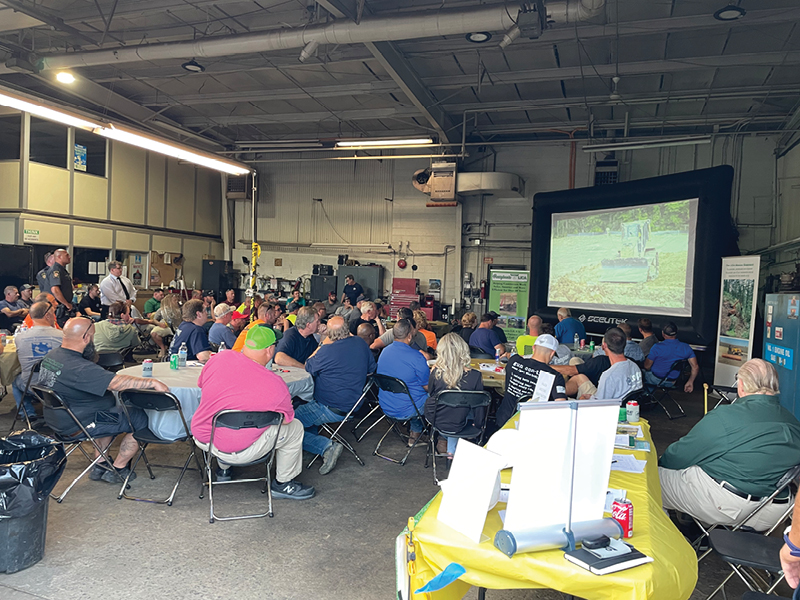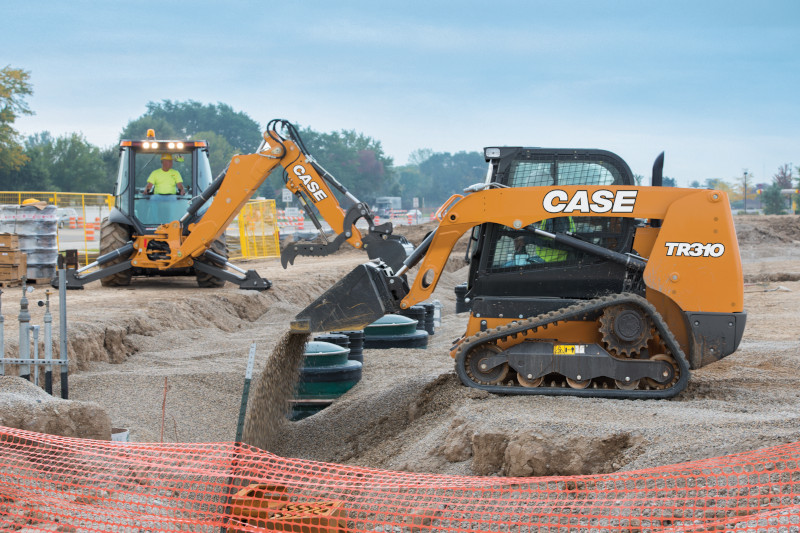Blog
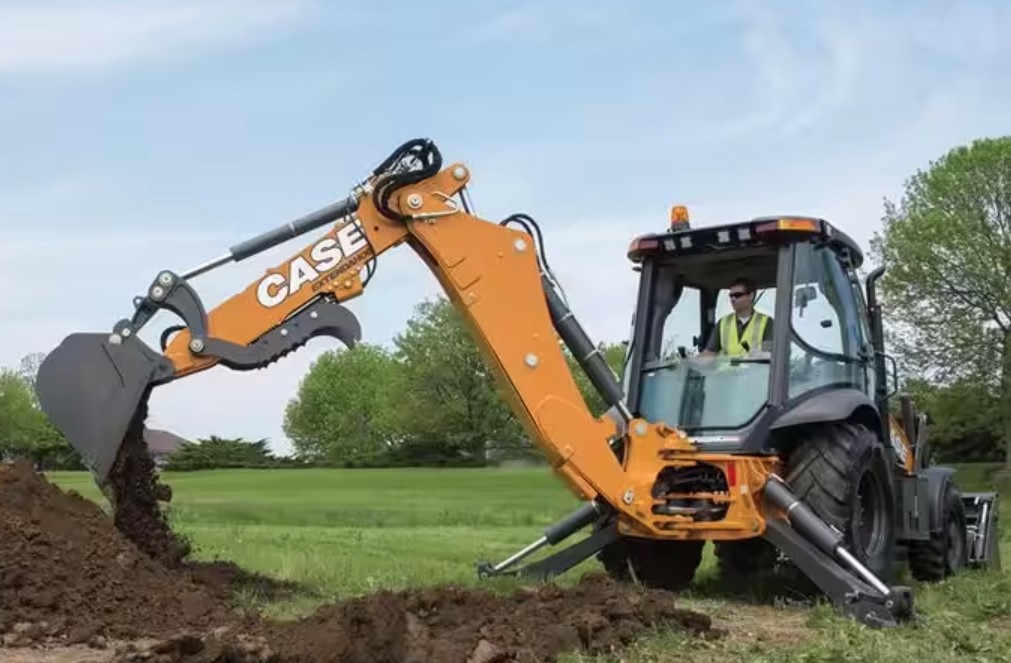
How To Get The Most Out of Your Backhoe
March 31, 2023A powerhouse in the construction industry, the Backhoe is a must-have for any site. It is renowned for its versatility, as it maneuvers through tight spaces with ease and takes on a multitude of tasks. Whether you are digging footings, clearing vegetation, or demolishing small structures, you can rely on the Backhoe to get the job done. On any job site, efficiency and precision are key— and these trusty machines deliver both.
Backhoes are capable of using a large number of front-end attachments, including digging blades and buckets, grapples, and brooms. This makes it ideal for all manner of tasks, including digging, earth moving, material transport, and site cleanup. And whether with a broom, a blade, or a push, backhoes prove extremely effective in moving piles of material and performing numerous jobs and tasks.
BUCKET SIZE
A backhoe is a versatile machine that can be used for a variety of tasks. To get the most out of your backhoe, it’s essential to understand its capabilities and limitations. One tip is to ensure that you are using the correct bucket size for the job. Using a bucket that is too large or too small can impact the machine’s performance and efficiency. Plus, using the right bucket size and weight can also impact your backhoe’s fuel efficiency. Using a bucket that is too large or too heavy can put unnecessary strain on the engine, causing it to burn more fuel.
AVOID OVERLOADING
Another important tip is to make sure you are using the proper techniques when operating the backhoe. For example, avoid overloading the bucket, as this can put unnecessary strain on the machine and cause damage.
Backhoes are an exceptional platform for numerous applications due to their remarkable stability. By virtue of this innate stability, they are frequently capable of accommodating more complex and weighty attachments than their compact and small-scale excavator counterparts. In addition, owing to their being a wheeled machine, they have a significantly reduced impact on surfaces when they make turns in comparison to their tracked counterparts.
Despite this, you should still try to avoid making sharp turns or sudden movements with the machine, especially with an overloaded bucket containing too much material, which can cause the backhoe to become unbalanced and potentially tip over. It’s important to follow the manufacturer’s recommendations for weight limits and operating procedures.
MAINTENANCE
Maintaining your backhoe is crucial to ensure it performs optimally. One way to do this is to keep the machine clean and to lubricate all moving parts regularly. You should also check the hydraulic fluid, filters, and tires frequently to ensure they are in good condition. It’s very important for you to follow the recommended maintenance schedule provided by the manufacturer. Neglecting to change the oil or filters can cause the machine to break down unexpectedly and could require costly repairs. Follow the manufacturer’s maintenance schedule and perform regular inspections to catch any issues early on, before they become a problem.
PROPER USAGE
It’s important to avoid using the backhoe in ways that it was not intended for. For example, using the bucket as a makeshift crane or lifting device can put unnecessary strain on the machine and potentially cause it to fail. It’s important to use the machine only for its intended purposes and avoid taking unnecessary risks. Overloading or overextending the bucket and lifting arm can cause the machine to fail, as will using the machine on an unstable surface, which can also cause it to tip over. It’s important to ensure that the machine is level before using it, as using it on a slope or too steep a grade can be dangerous.
FUEL EFFICIENCY
Improving your backhoe’s fuel efficiency can help you save money and reduce your environmental impact. One way to do this is to make sure the engine is properly tuned and running efficiently. This can include replacing air filters, changing the oil, and checking for any leaks or other issues.
Another tip is to avoid idling the machine for extended periods of time. Shutting off the engine when it’s not in use can help conserve fuel and reduce emissions. Additionally, reducing the machine’s speed when operating it can help improve fuel efficiency, as can avoiding sudden starts and stops.
TRAINING
The first step in using a backhoe properly is to get trained. It’s not only the operators who should be familiar with the operation of the machine, but also the owners, technicians, and anyone else on the job site who might use the machine. All involved should read the operator’s manual, learn the controls, and even take some time to watch manufacturer videos to improve their skills.
CORRECT OPERATION
Before Starting Work
Anyone who operates the backhoe should be fully comfortable with the machine’s operation before they start any work. Each machine has numerous settings and options that can range from barely noticeable to something that can drastically affect its operation. Take the time to familiarize yourself with the controls. Check the settings to make sure it’s set up for either backhoe or excavator digging, and adjust it to your preference if necessary. It’s also important to get a feel for the unit’s steering, which can be touchy depending on the backhoe’s model.
Maintenance Checks
At the start of every workday, you should perform basic maintenance checks to make sure the backhoe is ready to go. A basic, daily checklist might include:
- Checking for anything damaged that could interfere with operation
- Checking for flat tires or signs of inadequate inflation
- Checking all fluids (fuel, oil, hydraulic fluid, DEF, and coolant/anti-freeze)
- Checking high-activity areas of the machine and applying grease where needed
- Checking worn parts and replacing them as needed
Operating Tips
Here are six best practices for operating a backhoe:
- Allow the machine to warm up before engaging the controls to prevent potential hiccups to operation.
- Engage the stabilizers to prevent the machine from rocking or tipping when positioning it to dig. Expand the stabilizers to their full width for best control.
- Don’t overload the bucket. It can spill material and strain the loader, causing immediate and long-term stalls to operation.
- Keep the bucket low during transport to prevent material spillage and protect the machine from tipping in the event of an obstacle or hole.
- Dump away from the immediate excavation area to avoid re-digging areas.
- Allow the machine to cool down before shutting it off completely. Maintenance checks of all types (especially to the engine itself) should be performed only after the machine has completely cooled down.
Safety Checks
Safety should be a top priority on every jobsite. Conduct a pre-inspection of the site itself whenever digging is part of the work scope. Properly note or mark any underground obstructions and communicate them to all team members. If this hasn’t been done, call before digging to avoid unexpected interruption to work – or worse, damage to underground utility lines and potential safety hazards. Backhoe operators must also be aware of overhead lines and take caution to avoid coming in contact with them.
Additional Safe Operation Tips
- Honk the horn prior to moving the machine to alert those nearby
- Ensure the boom is locked and swing lock is in place before driving the machine
- Never leave the operator seat when the backhoe is running
- Do not go under the machine if it’s running
- When it’s time to shut off the machine, park it on a stable surface, then lower both the loader and bucket so they’re resting securely on the ground, and engage the parking brake.
GETTING THE MOST OUT OF YOUR BACKHOE
Backhoes are a useful and versatile addition to any construction site, and when operated properly can be real workhorses when it comes to getting the job done. If you’re looking for a backhoe, contact us. We have a wide variety of models to choose from, so we’re confident that we’ll find the perfect machine for you. Let us show you how easy it is to rent or purchase a backhoe to make your job easier than ever before.
Do you require the best quality construction equipment for your next project? Contact us now to discover why Eagle Power & Equipment is your one-stop shop for everything related to construction equipment sales, rentals, maintenance, and repairs.
Related Articles
https://www.high-endrolex.com/47


